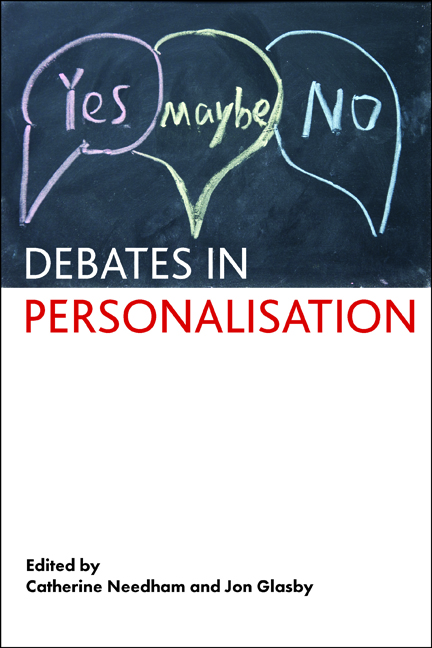Book contents
ten - Beyond ‘being an employer’: developing micro-markets
Published online by Cambridge University Press: 04 March 2022
Summary
The government strategy to drive personalisation focused in the early days almost entirely on giving people personal budgets (then called individual budgets). Targets were set for the percentage of people with a personal budget and the assumption was that giving people the money would drive the development of new types of supports and services and deliver personalisation:
Giving people an individual budget should drive up the quality of services. The ability of people to ‘buy’ elements of their care or support package will stimulate the social care market to provide the services people actually want, and help shift resources away from services which do not meet needs and expectations. We intend that the introduction of individual budgets will help promote the more effective use of the resources available to meet care needs. (DH, 2005, p 34)
The money provided by government to local authorities to implement personalisation was principally used to develop complex resource allocation systems to decide the size of each person's personal budget. Local authorities had a responsibility for market shaping – ensuring that people had choice of services to buy with their budget – but, as with central government, broadly assumed that the mere fact that they were giving people money to buy their own support would drive the development of new services – and that anyway people would, and should, principally use their personal budget to directly employ their own staff.
Since the early days of the In Control individual budgets pilots, evidence has gathered of the positive impact of personal budgets on people's lives – but also that this impact is dependent on people being genuinely in control of the way the money is spent, having good information and real choice of a range of good local services. For most local authorities, giving people real control, comprehensive and accessible information and real choice is proving even more difficult than giving them a personal budget. ‘There is a widespread perception that “real” personalisation means supported direct payments, with the person having to act as employer and co-ordinator of their support’ (Hatton, 2013).
- Type
- Chapter
- Information
- Debates in Personalisation , pp. 95 - 102Publisher: Bristol University PressPrint publication year: 2014



